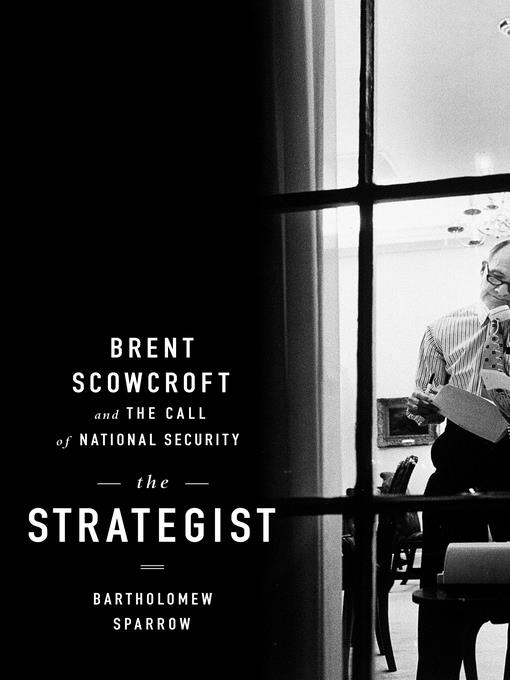
The Strategist
Brent Scowcroft and the Call of National Security
کتاب های مرتبط
- اطلاعات
- نقد و بررسی
- دیدگاه کاربران
نقد و بررسی

February 2, 2015
Scowcroft, national security adviser to Presidents Ford and G.W. Bush, is a self-effacing mastermind of statecraft in this fulsome biography. University of Texas political scientist Sparrow styles him the perfect mix of realism, internationalism, patriotism, and pragmatism: hawkish on communism's threat yet willing to engage it through détente and arms control; eager to attack Saddam in 1991 but not in 2002, when his public opposition to the looming Iraq War enraged the Bush Administration. Sparrow's authorized biography credits Scowcroft with a chess-master's knack for strategic improvisation in global crises and Washington political wrangles and with a superlative character: he's "brilliant," "selfless," "modest," and "caring"; an "honest broker" who seeks consensus through a competent "process." (Sparrow does critically examine some Scowcroft initiatives, noting a deficit of vision in his vague "new world order" concept.) Sparrow's exhaustively researched insider's narrative of U. S. foreign and military policy-making is lucid and readable, but 600 pages of Scowcroft's dreary centrism can drag, and one is grateful when colorful figures like Kissinger horn in. Unfortunately, in celebrating Scowcroft's embodiment of America's national security consensusâin dubious adventures from Vietnam to Panama to the Persian GulfâSparrow avoids taking a deeper look at the assumptions and worldview underlying that consensus. Photos. Agent: James D. Hornfischer, Hornfischer Literary Mgmt.

December 15, 2014
Old-school conservative military adviser Brent Scowcroft (b. 1925) receives a discursive biographical treatment. Academic historian/biographer Sparrow (Government/Univ. of Texas; The Insular Cases and the Emergence of American Empire, 2006, etc.) takes an exhaustive look at this important but hardly dynamic figure in the annals of American political and military history. After a brief stint as a fighter pilot that ended in his near death in a crash, Scowcroft went on to distinguish himself at West Point, and he eventually earned a doctorate at Columbia University. He quickly became highly regarded in his field, so much so that President Richard Nixon appointed him White House military adviser in 1972. As part of a Republican cabinet full of war hawks, Scowcroft served as one of the few voices of reason in the Nixon administration during the last few years of the Vietnam conflict. Virtually burying his subject in peripheral historical facts, Sparrow leads readers through Scowcroft's career as a highly sought military planner through the Nixon and Ford administrations, to Reagan and George H.W. Bush and up to the brink of the Iraq War in 2003. The author paints Scowcroft as a dying breed of Eisenhower conservative not yet averse to compromise, open-minded diplomacy and general pragmatism. When Scowcroft dared to express his doubts about the Iraq invasion of 2003, he was dropped by the new brand of conservatives in the Bush administration, thereby ushering in a new era of fierce partisanship in American politics that Scowcroft would not outlast. Sparrow is unapologetic about his subject's somewhat middle-of-the-road attitude toward his job: He never seemed to make any missteps, but he had few great triumphs, either. The biggest fault with Sparrow's book is a simple case of a lack of sufficient content editing: Had the narrative seen the knife of an attentive editor, it might have transcended mere doorstop status. Dry and factually overwhelming, the book will appeal to hard-core military historians and politicos.
COPYRIGHT(2014) Kirkus Reviews, ALL RIGHTS RESERVED.

























دیدگاه کاربران